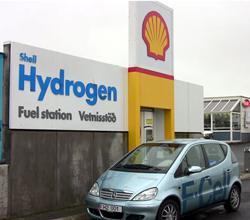|
BREVET DE TECHNICIEN SUPÉRIEUR SESSION 2009 Epreuve de langue vivante du groupe 17 Après-vente automobile, Conception et réalisation de carrosseries, Constructions navales, Étude et réalisation d'outillages de mise en forme des matériaux, Industries céramiques, Industries des matériaux souples, Industries papetières, Maintenance et après-vente des engins de travaux publics et de manutention, Mécanique et automatismes industriels, Mise en forme des matériaux par forgeage, Moteurs à combustion interne, Productique bois et ameublement, Réalisations d'ouvrages chaudronnés, Traitement des matériaux
Durée : 2 heures - Coefficient : 2 L'usage du dictionnaire bilingue est autorisé Calculatrices et traducteurs électroniques sont interdits ICELAND PHASING OUT FOSSIL FUELS FOR CLEAN ENERGY 1 Reykjavik, Iceland (CNN) - For more than 50 years Iceland has been decreasing its dependence on fossil fuels by tapping the natural power all around this rainy, windswept rock of fire.
2 Waterfalls, volcanoes, geysers and hot springs provide Icelanders with abundant electricity and hot water. 3 Virtually all of the country’s electricity and heating comes from domestic renewable energy sources – hydroelectric power and geothermal springs. It’s pollution-free and cheap. 4 Yet these energy pioneers are still dependent on imported oil to operate their vehicles and thriving fishing industry. 5 Iceland’s geographic isolation in the North Atlantic makes it expensive to ship in gasoline – it costs almost $8 a gallon (around $2 a liter). 6. Retired University of Iceland Professor Bragi Arnason has come up with a solution: Use hydrogen to power transportation. Hydrogen is produced with water and electricity, and Iceland has lots of both. 7 "Iceland is the ideal country to create the world’s first hydrogen economy," Arnason explains. His big idea has earned him the nickname "Professor Hydrogen." 8 Arnason has caught the attention of General Motors, Toyota and DaimlerChrysler, who are using the island-nation as a test market for their hydrogen fuel cell prototypes. 9 One car getting put through its paces is the Mercedes Benz A-Class F-Cell – an electric car powered by a DaimlerChrysler fuel cell. Fuel cells generate electricity by converting hydrogen and oxygen into water. And fuel cell technology is clean – the only by-product is water. 10 "It’s just like a normal car," says Asdis Kritinsdottir, project manager for Reykjavik Energy. Except the only pollution coming out of the exhaust pipe is water vapor. It can go about 100 miles on a full tank. When it runs out of fuel the electric battery kicks in, giving the driver another 18 miles. Filling the tank is similar to today’s cars – attach a hose to the car’s fueling port, hit "stars" on the pump and stand back. The process takes about five to six minutes. 11 In 2003, Reykjavik opened a hydrogen fueling station to test three hydrogen fuel cell buses. The public buses could run all day before needing refueling. CNN international, September 20, 2007. a fuel cell : une pile à combustible TRAVAIL À EFFECTUER PAR LE CANDIDAT I/ COMPRÉHENSION (10 points) Rédigez en français un compte rendu (200 mots environ, +/- 10%). Vous veillerez à dégager les éléments essentiels, dans un français de qualité, et indiquerez le nombre de mots utilisés. II/ EXPRESSION (10 points) Traitez en anglais les deux sujets suivants : 1/ What are the advantages of hydrogen fuel cell prototypes in Iceland?. Use your own words. (60 words +/- 10%) (4 points) 2/ Would you accept to buy the Mercedes A-Class F-Cell? Are you ready to make concessions for a greener future when buying a car? (120 words +/- 10%) (6 points) Pour imprimer, passer par le mode paysage © Christian Lassure - EFT page d'accueil sommaire sujets d'examen home tech voc general voc grammar EtoF FtoE exam papers texts pronunciation methods franglais dictionaries publications Q&A links © Christian Lassure - English For Techies |
